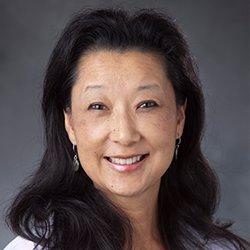
Shelley Hwang, M.D., chief of breast surgery at the Duke Cancer Institute, has been named one of TIME’s 100 most influential people for 2016 as a pioneer in her field.
One of the world’s foremost experts in early-stage breast cancers, Hwang has become an international leader calling for research to guide treatment for ductal carcinoma in situ (DCIS), in which abnormal cells are detected in the lining of a milk duct, but haven’t spread to other tissues.
DCIS is the most common form of non-invasive breast cancer in the U.S., and accounts for about 20 percent of all new breast cancer cases diagnosed from mammogram screenings. But doctors are divided on how some patients with low-risk DCIS should be treated.
Hwang’s research and advocacy for a more informed approach to DCIS treatments -- which could include lumpectomy and/or ongoing surveillance instead of aggressive radiation or mastectomy -- has helped spur international discussion. She has been a voice for women who are diagnosed with DCIS to receive the best treatment available while sparing them unnecessary procedures that don’t help, or may even cause harm.
Hwang and fellow breast cancer surgeon Laura J. Esserman, M.D., MBA, of the University of California, San Francisco, share the honor in TIME, written by musician and breast cancer survivor Melissa Etheridge.
“Shelley is an exceptional surgeon-scientist, who is, through elegant and focused investigation, redefining our understanding of breast cancer,” said Allan D. Kirk, M.D., Ph.D., chairman of the department of surgery at the Duke University School of Medicine and surgeon-in-chief at Duke Health. “However, her strongest trait is the genuine empathy, care and understanding she brings to each of her patients. She sets the standard for other surgeons to follow.”
Hwang’s work in the operating room and in the lab has focused on the evolutionary basis for how breast cancer progresses. Her lab is also working to identify common biomarkers of cancer progression that in the future could lead to clues in preventing the disease. She also serves on the National Cancer Institute Breast Cancer Steering Committee and the National Comprehensive Cancer Network Breast Cancer Screening and Diagnosis Committee, and is an advocate for cooperative group clinical trials in breast cancer.
Hwang is currently leading a national study evaluating how an oral hormone blocker could treat women with low-risk DCIS that may be fueled by estrogen. She is also the principal investigator of the first large, national trial that will compare the benefits of surgery or monitoring for patients with low-risk DCIS. She and co-investigators hope the trial provides landmark data to help identify the least invasive and most effective treatments for low-risk breast cancer.
“This an important study of more than 1,000 women that asks when it may be appropriate for women diagnosed with DCIS to omit surgery,” Hwang said. “We have assembled a dedicated multidisciplinary team of investigators and patients across the country to address a fundamental question about how we think of cancer and cancer treatment. I am proud that Duke and Duke Surgery provide an environment where we can address such questions.”
Hwang joins a prestigious roll on the TIME list, which this year honors the activism, innovation and achievement of artists and leaders including Christine Lagarde, Priscilla Chan and Mark Zuckerberg, Ta-Nehisi Coates, Leonardo DiCaprio, Aung San Suu Kyi and Kendrick Lamar. Hwang is the second Duke Cancer Institute physician to be named to the TIME list. In 2013, Kimberly Blackwell, M.D., was an honoree.
A full list of this year’s TIME 100 most influential people will appear in the May 2 issue of the magazine, available on newsstands and tablets on Friday, April 22, and currently online at time.com/time100.